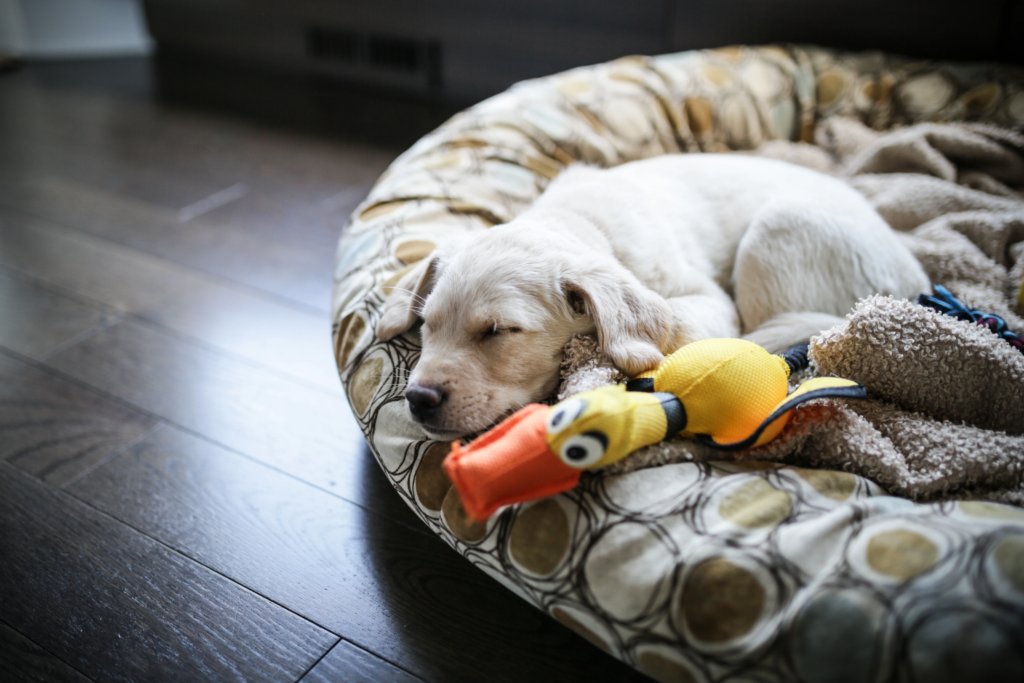Bringing a dog into your life is an incredibly rewarding experience, but it also comes with its own set of challenges and responsibilities.
Whether you’re considering adopting a puppy or an adult dog, being prepared is key to ensuring a smooth transition for both you and your new furry friend.
Here’s a comprehensive guide covering everything a first-time dog owner should know:
1. Choosing the Right Dog:
Research breeds: Different breeds have different temperaments, energy levels, and care requirements. Choose a breed that matches your lifestyle and preferences.
Consider adoption: Many wonderful dogs are waiting for forever homes in shelters and rescue organizations. Adoption can be a fulfilling way to find your new companion.
2. Preparing Your Home:

Create a safe space: Dog-proof your home by removing hazardous items and securing cabinets, electrical cords, and other potential dangers.
Provide essentials: Purchase necessary supplies such as food and water bowls, a comfortable bed, grooming tools, toys, and a leash and collar or harness.
3. Establishing a Routine:

Set a feeding schedule: Feed your dog at consistent times each day, and monitor their weight to ensure they’re getting the right amount of food.
Establish bathroom breaks: Take your dog outside regularly, especially after meals, playtime, and waking up, to help them learn where to do their business.
4. Training and Socialization:

Basic obedience training: Teach your dog commands like sit, stay, come, and heel. Positive reinforcement methods are effective and promote bonding.
Socialize early: Expose your dog to various people, animals, and environments to help them become well-adjusted and confident.
5. Health and Wellness:

Veterinary care: Schedule regular check-ups with a veterinarian to keep your dog healthy and up-to-date on vaccinations, flea and tick prevention, and heartworm medication.
Proper nutrition: Feed your dog a balanced diet appropriate for their age, size, and activity level. Avoid feeding them table scraps or foods that could be harmful, such as chocolate, grapes, or onions.
6. Exercise and Play:

Physical activity: Dogs need daily exercise to maintain their physical and mental well-being. Take them for walks, play fetch, or engage in other activities that cater to their energy level and interests.
Mental stimulation: Provide puzzle toys, interactive games, and training sessions to keep your dog mentally stimulated and prevent boredom.
7. Building a Strong Bond:

Spend quality time together: Bond with your dog through play, training, and snuggle sessions. Positive interactions will strengthen your relationship.
Be patient and consistent: Dogs thrive on routine and clear expectations. Stay patient and consistent with training and care to build trust and understanding.
8. Handling Challenges:

Be prepared for setbacks: Dogs may exhibit behaviors like chewing, barking, or house soiling, especially during the adjustment period. Stay calm and address issues with patience and positive reinforcement.
Seek professional help if needed: If you encounter significant behavior problems or health concerns, don’t hesitate to consult with a professional trainer or veterinarian for guidance.
9. Enjoying the Journey:

Embrace the joy of pet ownership: Dogs bring endless love, companionship, and laughter into our lives. Cherish the moments you share and celebrate the bond you’ve formed with your furry friend.
By arming yourself with knowledge and taking proactive steps to care for your dog’s physical and emotional needs, you’ll be well-equipped to embark on this exciting journey of pet ownership. With time, patience, and plenty of love, you and your new canine companion will forge a bond that lasts a lifetime.

